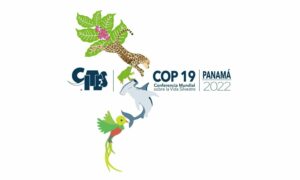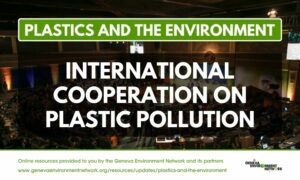Newsletter 21 Nov 2022
Environment: What’s Up in GENeva | 21 – 27 November 2022

The Geneva Environment Network’s weekly newsletter includes the latest information on the global environmental agenda, main events, job vacancies, learning opportunities, as well as other useful resources and updates. Stay tuned and follow us also on Twitter, Facebook, LinkedIn, Youtube, or visit our website regularly for additional updates.
Image of the week | The fifteenth meeting of the Basel Convention Implementation and Compliance Committee (ICC-15) and the first meeting of the Rotterdam Convention Compliance Committee convened a joint session in Geneva to discuss issues of common interest. © UNEP GEN/Marina Garlatti. 17 November 2022.
Tackling Climate Change | Sharm el-Sheikh Outcomes
Adoption of Sharm el-Sheikh Implementation Plan
The Sharm el-Sheikh Climate Change Conference – UNFCCC COP27, concluded Sunday morning with the adoption of the Sharm el-Sheikh Implementation Plan. Key elements include:
- Loss and Damage | Member States agreed to establish a funding mechanism to compensate vulnerable nations for ‘loss and damage’ from climate-induced disasters.
- Human Rights | The Sharm el-Sheikh Implementation Plan is the first outcome of an environmental negotiation process including an explicit reference to the human right to a clean, healthy and sustainable environment. Controversies around the limits to civil society participation in the climate conference lasted until the very end. On Friday, several UN experts on human rights, including the Special Rapporteur on human rights and the environment, urged Egyptian authorities to ensure the safety and full participation of climate activists and civil society, which had been subjected to intimidation, harassment and surveillance during the summit.
- Fossil Fuels | Many stakeholders deplored that COP27 failed to address the root cause of the crisis, fossil fuels, which are causing the loss and damage. Over 80 Member States called for a phase out of fossil fuels.
Read more →
- COP27 closes with deal on loss and damage: ‘A step towards justice’, says UN chief | UN News | 20 November 2022
- COP27 Reaches Breakthrough Agreement on New “Loss and Damage” Fund for Vulnerable Countries | UNFCCC | 20 November 2022
- Landmark decision at COP27 to set up Loss and Damage Fund | CAN Int | 20 November 2022
- Facing undeniable calls for climate justice: progress on loss and damage at COP27 | Loss and damage collaboration
- At COP27, Long-delayed Action on Loss and Damage but Continued Inaction on the Fossil-Fuels Causing that Loss and Damage | CIEL | 20 November 2022
- IUCN expresses concern over slow progress at COP27 while welcoming recognition of Nature-based Solutions | IUCN | 20 November 2022
- Loss and damage fund risks becoming ‘fund for the end of the world’ due to COP27 failures | WWF | 20 November 2022
- Earth Negotiations Bulletin
Plastic’s Contribution to the Climate Crisis
In the margins of the climate negotiations, various actors emphasized that the plastic sector should not be ignored as one of the drivers of climate change. Made almost exclusively of fossil fuels, plastics are threatening the ability of the global community to keep global temperature rise below 1.5°C. UNCTAD, BRS Secretariat, UNEP and UNODC stressed combating plastic pollution and illegal traffic in plastic waste can reduce CO2 emissions. Experts from CIEL had already warned that GHG emissions from plastics could reach about 13% of the entire remaining carbon budget by 2050. Turning off the plastic tap is the key to tackling both the pollution and climate crises. Read more in our dedicated update on Plastics & Climate Change as part of the Plastics & the Environment series.
- Experts say COP27’s ‘plastic waste pyramid’ is focusing on the wrong solution | Grist | 14 November 2022
- What do plastics have to do with climate change? | UNDP | 15 November 2022
New Reports on Cross-sectoral Climate Issues
- Making trade work for climate change mitigation: The case of technical regulations | UNCTAD | November 2022
This report provides an analysis of the most relevant and most used trade-related measures in the context of climate change mitigation strategies, assesses the challenge of increasing their compatibility with international trade law, and discusses the effectiveness, feasibility, and equity of these measures, focusing, in particular, on developing countries. - Human Rights implications of COVID-19 response measures in the context of climate change | OHCHR | 16 November 2022
The brief presents key initial findings of OHCHR research on human rights and COVID-19 response measures in the context of climate finance, and it makes concrete recommendations for States/policy-makers, development cooperation actors, climate funds, public international financial institutions and civil society.
Towards a Global Plastics Treaty | Stakeholders Convening in Uruguay
Many experts from international Geneva are heading to Punta del Este in Uruguay, where the first session of the Intergovernmental Negotiating Committee to develop an international legally binding instrument on plastic pollution (INC-1) will kickoff next week, and where other important meetings on the plastic pollution agenda organized in the margins of this negotiations are taking place, including:
- Third meeting of the Basel Convention Plastic Waste Partnership (PWP) working group | 23 – 25 November
The working group will take stock of the developments in its project groups and to plan for upcoming activities. Discussions will address working modalities of the PWP, a report on the PWP pilot project programme, development of the workplan for 2024-25 meeting, and activities to promote working group cooperation and coordination. - Multi-stakeholder Forum INC1 | 26 November
UNEA resolution 5/14, requested UNEP Executive Director to convene this hybrid multi-stakeholder forum to facilitate the exchange of information and gather perspectives from different stakeholders across the plastics life cycle. The key outcomes and messages from the Forum will be summarized during INC-1.
Read more →
- As countries prepare for negotiations, CIEL, EIA and Greenpeace have compiled an overview of countries’ and stakeholders’ submissions to INC1 regarding clustering on the full life cycle stages for negotiation.
- As dissent brews over whether treaty negotiators should consider the full life cycle of plastic, including plastic production, this recent article by Back to Blue underscores the need for plastic treaty negotiators to carefully examine the role of chemicals in the transition to a circular plastics economy.
- Stay updated with global discussions on international cooperation to end plastic pollution through our Plastics & the Environment series. Our resources also include recent review of reports and news from academic institutions, civil society organizations, international organizations, and more.
Highlights of last week:
- Australia joins global efforts to end plastic pollution | Australian Department of Climate Change, Energy, the Environment and Water | 16 November 2022
Just a week before the start of the negotiations, the government of Australia has signaled its ambition to achieve a strong agreement and end plastic pollution by 2040. A few days later, Azerbaijan also announced its support to the coalition, bringing the total number of member countries of the High Ambition Coalition to End Plastic Pollution to 34. - The Brand Audit Report 2018-2022 | Break Free From Plastic | 15 November 2022
The latest Brand Audit Report five years of data on plastic waste collected at community cleanups around the world, tracing which corporations contributes most the plastic crisis. It also examines what the top plastic polluters have done – and failed to do – to address plastic pollution. Read more →
Tackling Biodiversity Loss | Ongoing and Upcoming Negotiations
Ongoing World Wildlife Conference
The 19th Conference of the Parties to the Convention on International Trade in Endangered Species of Wild Fauna and Flora (CITES COP19) or World Wildlife Conference continues this week in Panama, marking an important milestone for addressing the impending environmental crisis. While decisions still need to be formally accepted in plenary this week, negotiations have shown progress regarding the protection of shark species:
- Consensus decision in favor of Proposal 38 recommending to list Hammerhead sharks under Appendix II
- Vote on Proposal 37, passed by a two third majority, recommending to list all Requiem sharks under Appendix II
Negotiations will continue this week, discussing the possible inclusion of other threatened species. → Follow the negotiations in the Earth Negotiations Bulletin.
The CITES Secretariat released last week the first-ever World Wildlife Trade Report, providing insights and analysis into the global trade in animals and plants that are regulated under this international treaty.
Forthcoming UN Biodiversity Conference
Another milestone in global efforts to halt biodiversity loss is coming soon. Governments and other stakeholders will gather in Montreal in December for the second part of the UN Biodiversity Conference (Fifteenth meeting of the Conference of the Parties (COP-15) to the Convention on Biological Diversity (CBD), the Tenth meeting of the Conference of the Parties serving as the meeting of the Parties to the Cartagena Protocol on Biosafety (COP-MOP 10), and the Fourth meeting of the Conference of the Parties serving as the meeting of the Parties to the Nagoya Protocol on Access to Genetic Resources and the Fair and Equitable Sharing of Benefits Arising from their Utilization (NP-MOP 4)). The meeting is expected to adopt the post-2020 Global Biodiversity Framework (GBF), which will set targets for 2030 in line with the vision of living in harmony with nature by 2050. Learn more about expectations for the meeting:
- This week the importance of the engagement of the agrifood sectors for the success of the post-2020 GBF will be discussed at the FAO briefing in Geneva on 22 November at 10.00 CET. As several objectives of the GBF are closely linked to agriculture and food security, active engagement of the agrifood sectors will be critical to the successful adoption of the post-2020 GBF.
- Next week the Geneva Executive Briefing on the United Nations Biodiversity Conference organized by the Geneva Environment Network on 30 November 2022, from 14.00 to 15.30 CET, will provide updates on the preparations of this important event and the perspectives from the Geneva Biodiversity Cluster.
- UNEP Finance Initiative (UNEP FI) is inviting financial institutions to sign an ambitious new statement calling on world leaders to agree a global economic plan for halting and reversing nature loss, ahead of the UN Biodiversity Conference (COP15) in early December.
What (Else) Should I Read Next?
- Eight billion people, one humanity | Antonio Guterres | Geneva Solutions | 14 November 2022
As the global population reaches over eight billion people, the UN Secretary General warns about the growing division among people, calling for a recognition that “inequality is a choice, and one that developed countries have the responsibility to reverse”. This includes strong climate action and commitments to financial and technical support developing countries’ transition away from fossil fuels.
- Enterprises must be key actors in the green transition | ILO | 14 November 2022
The new ILO report – Greening Enterprises: Transforming processes and workplaces highlights the crucial role that enterprises can play in protecting the environment and creating a just transition based on equity and the participation of all stakeholder. The report highlights that both workers and employers increasingly view greening workplaces as an important endeavor, but that enterprises still face many hurdles in going green. - Amid food and climate crises, investing in sustainable food cold chains crucial | UNEP | 12 November 2022
The Sustainable Food Cold Chains report by FAO & UNEP explores how food cold chain development can become more sustainable and makes a series of important recommendations. These include governments and other cold chain stakeholders collaborating to adopt a systems approach and develop national action plans. - En Suisse, 700’000 personnes touchées par de lʹeau contenant des résidus du chlorothalonil | RTS Info | 18 November 2022
The report from the Swiss Confederation on the Implementation of the UNECE Water and Health Protocol shows that Switzerland is on track to meet the targets, despite remaining challenges regarding climate adaptation, local water shortages, water resources protection and micropollutants in drinking water. In particular, high levels of chlorothalonil, an agrochemical substances banned in Switzerland since 2020, have been detected. Hear also the explanations from Nathalie Chèvre (in French), ecotoxicology researcher at the University of Lausanne. - What if countries spent less on conflict and more on climate? | Pip Cook | Geneva Solutions | 18 November 2022
While global military spending have been on the rise for the past seven years and reached a records-high of $2.1 trillion in 2021, civil society organizations are called for governments to reduce these spending and dedicate funds for climate financing instead to help countries more vulnerable to climate change invest in adaptation, mitigation and loss and damage.
- Résultats de la campagne sismique 3D: le potentiel géothermique du canton est confirmé | State of Geneva | 15 November 2022
According to new analyses by the State of Geneva and the Services industriels de Genève (SIG), the region’s environment is conducive to the exploitation of medium-depth geothermal energy, a key resource for the its ecological transition. These prospects should allow the State of Geneva to develop geothermal energy on a large scale in the near future and thus reach its objective to cover 30% of the canton’s heating needs by 2050. - Building a fossil fuel non-proliferation treaty: Key elements | Peter Newell, Harrovan Asselt & Freddie Daley | Earth System Governance | 2022
The report elaborates on the possible institutional mechanisms, principles, procedures, and other elements of an FF NPT, by drawing on relevant precedents and parallels with other treaties and bodies of international law on the environment and other policy arenas, and proposals circulating in academic and grey literatures.
- CITES and One Health – a commentary | John Scanlon | 20 November 2022
“We need to take a One Health approach to wildlife trade and markets. Progress on all fronts, including by CITES at CoP19, is welcome. However, should a Resolution on ‘One Health and CITES’ be adopted at CoP19 or a later date, we should not view such a non-binding Resolution as being anywhere near sufficient for addressing the risk to public or animal health that is posed by certain wild animal trade and markets.”
Events
See all
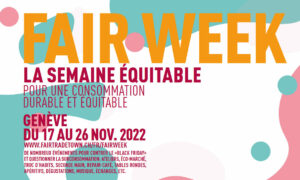



Virtual
Tariffs on Environmental Goods: A (Non) Starter for Developing Countries’ Green Transition
22 Nov 2022 09:30 – 11:00
Online | Zoom
ITC
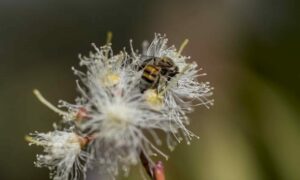
Virtual
FAO in Geneva | On the Road to the UN Biodiversity Conference (COP15)
22 Nov 2022 10:00 – 11:30
Online | Zoom
FAO

Virtual
Conceptualizing the Arctic; a Zone of Peace or a Zone of Conflict?
22 Nov 2022 13:00 – 15:00
Online | Webex
IHEID

Workshop
Fisheries Subsidies Workshop: Overview of key disciplines in the agreement and revolution of the overcapacity and overfishing disciplines
23 Nov 2022 09:30
WTO HQ
WTO

Virtual
Meeting of the Aarhus Convention Special Rapporteur on environmental defenders
23 Nov 2022 10:00 – 12:00
Online | Zoom
Aarhus Convention

Virtual
Online Discussion | Environmental Injustice Issues to Consider for Chemical Risk Management
23 Nov 2022 14:00 – 15:30
Online | Webex
SAICM

Body Meeting
9th meeting of the Working Group of the Parties to the Protocol on PRTRs
24 – 25 Nov 2022
Palais des Nations | Room XXIV
Aarhus Convention

Local
Atelier | Les cahiers de la transition
24 Nov 2022 14:00 – 18:00
Maison Internationale des Associations à Genève (salle Carson)
Republic and State of Geneva
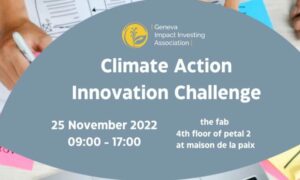
Local
Innovation Challenge for Climate Action
25 Nov 2022 09:00 – 17:00
The Fab, Maison de la Paix
Geneva Impact Investing Association

Virtual
Biovision Symposium 2022 | Food Makes a Difference!
26 Nov 2022 14:00 – 17:00
Online
Biovision Foundation

Conference
Climate emergency: actions and professions for a sustainable future | Cité des Métiers
26 Nov 2022 16:00 – 18:00
Palexpo Hall 6, Espace Agora
Fondation pour Genève, Eduki Foundation, UNOG
Jobs
See all

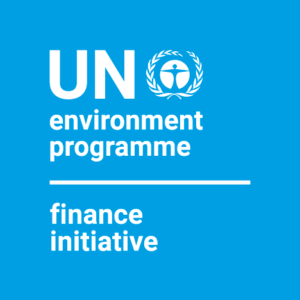
Consultant
Sustainable Banking & Principles for Responsible Banking Review Expert
23 Nov 2022
UNEP FI
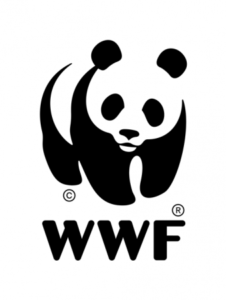
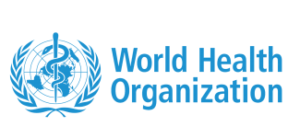
Consultant
Consultant – Alliance for Transformative Action on Climate and Health (ATACH)
24 Nov 2022
WHO
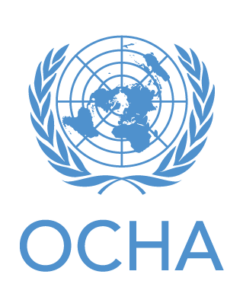



Learning
See all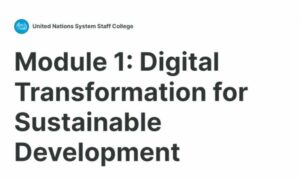
Online Course
Online course on Digital4Sustainability by UNEP and the UN System Staff College
01 Dec 2022 – 28 Feb 2023
UNEP, UNSSC

